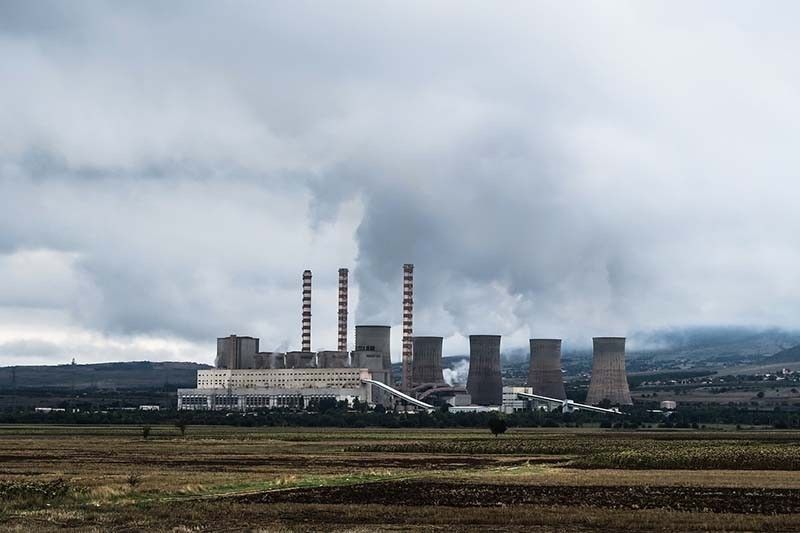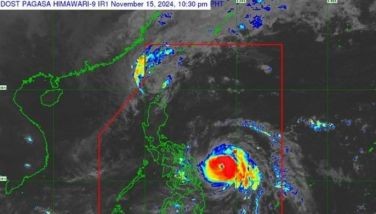More coal plants seen to add to hundreds killed yearly by their pollution

MANILA, Philippines — Adverse health impacts linked to air pollution could more than double in Metro Manila and four other provinces in Luzon should proposed coal-fired power plants be switched on, a study of an independent research group projected.
The Centre for Research on Energy and Clean Air said the country’s existing 10-gigawatt coal capacity was responsible for 630 air pollution-related deaths in the Philippines last year. The number of annual deaths is expected to increase to 1,000 once all nine gigawatts of pending coal plants proceed.
The report, released on November 11, looked into pollution caused by coal-fired power plants and its health impacts.
Luzon, which has the highest megawatt capacity of installed coal plants, suffers almost 68% of the projected deaths due to air pollution, according to the study. Its burden could rise to 77% of the 1,009 estimated premature deaths as it hosts most of the proposed coal plants.
Under the current scenario, cases of adverse health impacts from coal normalized against population density are highest in Batangas, followed by Misamis Oriental and Pangasinan.
‘Far-reaching’ impacts
According to the World Health Organization, pollution from coal-fired power plants, specifically particulate matter of 2.5 microns or less in diameter, travels over long distances and contributes to ambient pollution.
PM 2.5 is the most dangerous kind of airborne pollution, which can cause asthma, heart disease and lung cancer.
"Pollutants from 28 plants in the country do not just affect their immediate vicinities but also have far-reaching impacts on other areas and provinces nearby. This gets significantly worse with the additional nine gigawatts of coal capacity," Isabella Suarez, one of the report’s authors, said in a forum.
Metro Manila does not host any coal plants but air pollution-related deaths in the capital region are feared to rise by 109% if all new proposed coal projects make it to the grid.
Premature deaths linked to air pollution are also projected to more than double in the provinces of La Union and Bataan, where major coal projects are proposed to be built. Bulacan, meanwhile, is projected to have a 102% increase in cases of adverse health effects.
Zambales, Lanao del Norte, Pangasinan, Cavite, Tarlac and Pampanga are at risk of more than a 50% increase in air pollution-related deaths, according to the study.
CREA also reported that economic costs would rise to P14 billion annually from the current P8.5 billion if the proposed plants become operational.
“If the proposed coal-fire power plants are commercialized by 2024, these new plants would result in almost 26,300 premature deaths over 40 years and cumulatively cost the country $7.2 billion (P370 billion),” the report read.
CREA stressed that prioritizing better policy on air quality and energy is especially urgent as the country grapples with the coronavirus disease pandemic, noting there are studies indicating that air pollution may have contributed to increased susceptibility to the virus.
Fossil fuels such as coal, when burned, release carbon dioxide and other greenhouse gases, also making them major contributors to global warming.
Coal moratorium
In October, the energy department declared a moratorium on new coal-powered generators, signaling a dramatic shift in the country’s energy policy. The moratorium, however, does not include previously approved projects that are already in the pipeline.
“In the longer term, we need to reduce our reliance on coal and transition to cleaner renewable sources. In our energy planning, we need to account for these hidden costs of air pollution to our health, the environment and other sectors,” Suarez said.
The report noted many of the provinces at risk of increased health impacts due to air pollution have renewable energy potential.
Dr. Rory Perez, a village official of Barangay Lamao in Limay, Bataan said the health of their community is being jeopardized by the presence of coal plants in the area.
“Until now, we’re still struggling. The [pieces] of evidence are here. We are inviting you to come to our barangay to see for yourself the effects not only in our air but also in our seas, water system,” Perez said in the forum.
“We are hoping that one day, we can have cleaner air, we can have ample water supply, we can have fish that are not contaminated with mercury or cadmium. We are hoping our government will consider the health of its people. We do hope they’ll realize it’s not only the financial aspect that is important in the lives of the people,” she added.
- Latest
- Trending































